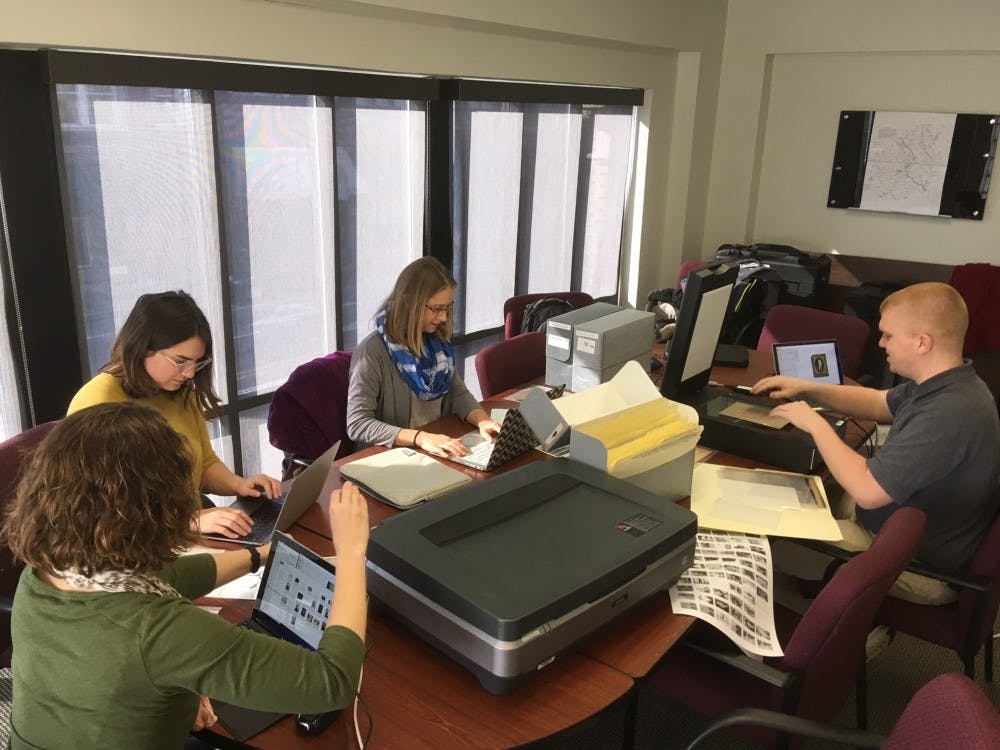In November 1898, white supremacists in Wilmington staged race riots targeting Black residents and businesses, which culminated in burning down the offices of the town’s only Black newspaper “The Daily Record.”
Despite several years of daily publication, only seven original, physical copies of the paper are known to survive.
A short hundred years later, a group of eighth grade students in Wilmington worked on a yearlong project with a local journalist to uncover some of the lost editions, eventually finding several in the collections of the Cape Fear Museum.
The North Carolina Digital Heritage Center invited the students and staff from the Cape Fear Museum to Wilson Library to participate in the digitization of the physical copies they found during the summer of 2017.
The NC Digital Heritage Center has been digitizing tens of thousands of photographs, yearbooks, newspapers and other historical documents from across the state since 2009.
“The collections on our site really give a deep insight to the local history of these places that otherwise would be really relegated to that town. You would have to go to that place, to that library, to see those materials,” said Digital Projects Librarian Kristen Merryman. “By having it on our site, it’s open to a worldwide audience. So many places in North Carolina have so many great stories, and we’re just helping to expose them.”
Funded primarily by the State Library of North Carolina, the NC Digital Heritage Center works to create a digital archive of supporting documents of local histories, alongside similar programs also housed within Wilson Library. The program is an outgrowth of the state library's desire to offer statewide digitization services to libraries' historical and cultural centers at a central location.
UNC was originally chosen to house the program because of technological and archivist expertise within the University.
“I’m pleased that it’s helping people around the state understand that the University library in particular, but also, UNC is a place that serves people who may not be physically present here,” said Bob Anthony Jr., director of the North Carolina Digital Heritage Center.



